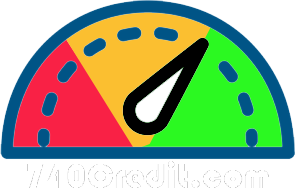Do You Have Healthy Credit-A Quick Q&A

How do you know if you have healthy credit? Consider the following scenarios:
Jeanne answered an ad that promised 0% financing for her new car. When she got to the dealership, the best she could get was 6%.
Marco and his wife found their dream house, however, their loan officer told them that the interest rate they qualified for was so high that they couldn’t afford the house anymore.
Karen, after a long search, found an apartment to rent – but the landlord turned her down as a tenant after he ran a credit check on her.
All of these peoples’ lives were affected by information in their credit report. Sometimes our own credit history affects us-decisions that we make ourselves. Sometimes we are hurt by the things that other people do-through errors on our reports or, worse still, identity theft.
Credit reports and credit scores
Q. What is a credit report?
A. It’s a history of how you pay your bills. It also includes where you live, whether you’ve been sued, arrested, or filed for bankruptcy, and which companies have checked on your credit-worthiness. All of this information is collected by three nationwide consumer reporting companies. You should know that the information that they’ve collected may not always be the same, so it’s important to check out all three companies when you check your credit history to ensure you have healthy credit.
Q. What is a credit score?
A. Information in your credit report is boiled down into a number that helps lenders and others decide whether to give you credit-and at what rate. It’s supposed to represent how likely you are to repay your debts, because it’s based on information in your credit report. Scores range from 300 to 850. Most people score in the 600 to 700 range.
Q. Why do credit scores matter?
A. The better your credit history, the higher your credit score. The higher your credit score, the lower your interest rates will be. That’s true if you’re buying a home or car, or if you’re simply using a credit card. To creditors, a higher score means you’re a lower risk, so companies will charge you less to loan you money.
Even if you’re not in the market for more credit, you should know that your credit history and score may both affect whether you can get auto or home insurance, and how much you’ll pay for it. Since many landlords check credit histories, your credit may also affect whether or not you can rent an apartment. The same is true of employers. Many now check credit histories before offering you a job.
Q. How can I get my credit report?
A. There are several ways. The best place to start is by requesting your free reports. Federal laws allows each of us to get one free credit report from each of the three nationwide Consumer Reporting Companies (CRCs): Equifax, Experian, and TransUnion.
There’s only one source for the free reports, but you can request them online, by phone, or by mail. You can request one, two, or all three reports at a time. It’s up to you. You’ll have to give your name, address, Social Security number, and date of birth to get your reports. You may also have to answer some questions with information that only you would know-such as the amount of your monthly mortgage or car payment. This is to protect the security of your credit information.
You’ll be able to get your free reports every 12 months. But if you want to check your reports in the meantime, you can always buy them. They cost about $9.00 and are available directly from the three nationwide CRCs. Having copies of your credit reports is the first step to knowing if you have healthy credit.
Q. Should I buy my credit score?
A. Different CRCs may have different scores for you. If you’re about to make a big purchase, it probably pays to find out which score your lender will be checking. Much of the time, that’s your FICO score. You can buy that score at www.myfico.com. You can also buy your credit score directly from the three CRCs. If you’re not making a big purchase, though, you may not need to check your score very often. What’s most important is being sure that the information in your credit report is accurate-and actually belongs to you. Knowing you credit score is also key to knowing if you have healthy credit.




